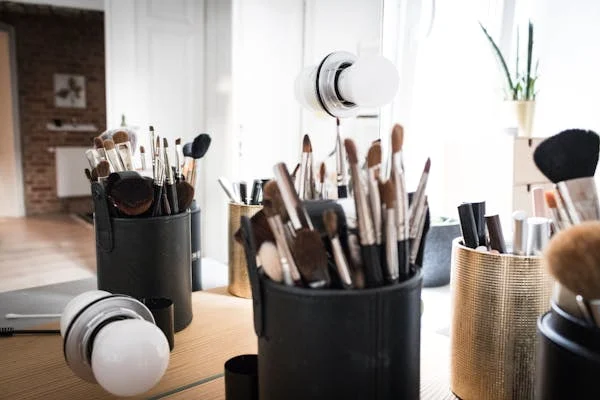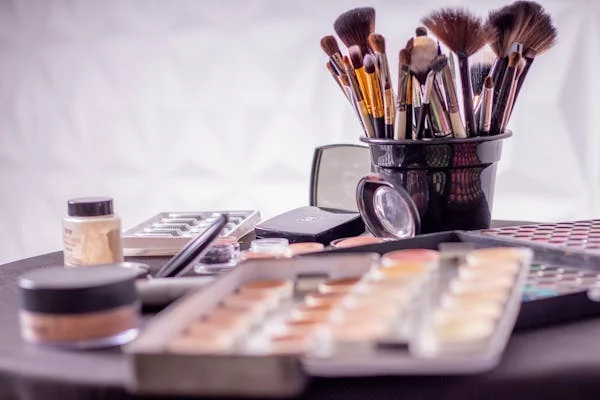Having luscious, healthy hair is often a symbol of beauty and vitality. With countless products, advice, and old wives’ tales circulating, it’s easy to fall into the trap of haircare myths that may actually do more harm than good. In this comprehensive guide, we’ll debunk common misconceptions surrounding haircare and provide evidence-based insights to help you achieve and maintain stunning locks.
1. Myth: Cutting your hair frequently makes it grow faster
Fact: While regular trims can help maintain the health and appearance of your hair by preventing split ends, they do not directly affect its growth rate. Hair growth occurs at the scalp, and cutting the ends does not influence the rate at which hair grows from the roots. However, trimming can prevent breakage and make your hair appear thicker and healthier.
2. Myth: Brushing your hair 100 strokes a day makes it healthier
Fact: Excessive brushing can actually cause damage to your hair by leading to breakage and friction. While brushing can distribute natural oils along the hair shaft, 100 strokes a day is unnecessary and may strip the hair of its natural oils, leaving it dry and brittle. Instead, opt for gentle brushing when needed to detangle and style your hair.
3. Myth: Shampooing every day is essential for clean hair
Fact: Washing your hair daily can strip it of its natural oils, leading to dryness and potential damage. How often you should shampoo depends on your hair type and lifestyle. While some may benefit from daily washing, others with drier or curly hair may only need to shampoo a few times a week. Over-washing can disrupt the natural balance of oils on the scalp, so it’s important to find a washing frequency that works for you.

4. Myth: Cold water rinses make your hair shinier
Fact: While rinsing your hair with cold water can temporarily close the hair cuticle, leading to smoother and shinier hair, the effect is minimal and short-lived. Cold water may help seal in moisture and reduce frizz, but it won’t dramatically improve the overall health or appearance of your hair. Instead, focus on using quality haircare products and maintaining a healthy diet to promote shine and vitality.
5. Myth: Trimming your hair during a certain phase of the moon promotes faster growth
Fact: There is no scientific evidence to support the idea that cutting your hair during a specific lunar phase affects its growth rate. Hair growth is primarily influenced by genetics, hormonal factors, and overall health, rather than external factors like the moon’s phases. While some may believe in lunar haircare rituals, there is no empirical data to validate their effectiveness.
6. Myth: You can repair split ends with the right products
Fact: Once the hair shaft is split, it cannot be repaired. While certain products may temporarily seal split ends and improve the appearance of damaged hair, the only permanent solution is to trim the split ends. Regular trims and proper haircare practices, such as using a heat protectant and avoiding excessive heat styling, can help prevent split ends from occurring in the first place.
7. Myth: Natural remedies are always better for your hair
Fact: While some natural ingredients can benefit your hair, not all natural remedies are effective or safe. Lemon juice, for example, may lighten hair but can also cause dryness and damage due to its acidic nature. It’s essential to research and understand the potential risks and benefits of natural remedies before incorporating them into your haircare routine. Additionally, many synthetic ingredients have been scientifically formulated to address specific hair concerns effectively.

8. Myth: Your hair gets used to the same shampoo, so you need to switch it up
Fact: There is no scientific evidence to support the idea that hair becomes immune to the effects of a particular shampoo over time. However, if you notice changes in your hair’s texture or condition, it may be due to factors such as seasonal changes, hormonal fluctuations, or environmental stressors rather than your shampoo. Finding a shampoo that works for your hair type and sticking with it is generally recommended, as frequent switching can disrupt the scalp’s natural balance.
Conclusion: Debunking Haircare Myths for Healthy, Gorgeous Locks
In a world inundated with beauty advice and product recommendations, it’s crucial to separate fact from fiction when it comes to haircare. By debunking common myths and understanding the science behind hair health, you can make informed decisions about how to care for your locks. Remember that maintaining healthy hair involves a combination of proper nutrition, regular maintenance, and gentle treatment. With the right knowledge and practices, you can achieve the beautiful, vibrant hair you’ve always wanted.
FAQ
Q1: Can certain foods improve the health of my hair? A1: Yes, a balanced diet rich in vitamins, minerals, and protein can support healthy hair growth. Foods like salmon, eggs, nuts, and leafy greens contain nutrients that nourish the hair follicles and promote strong, shiny hair.
Q2: Is it true that stress can cause hair loss? A2: Yes, excessive stress can disrupt the hair growth cycle and lead to temporary hair loss known as telogen effluvium. Managing stress through relaxation techniques, exercise, and a healthy lifestyle can help prevent this type of hair loss.
Q3: How can I protect my hair from damage caused by heat styling? A3: To minimize heat damage, use a heat protectant spray before styling with hot tools and avoid using high temperatures. Additionally, limit heat styling to no more than a few times per week and consider incorporating heat-free styling methods into your routine.




